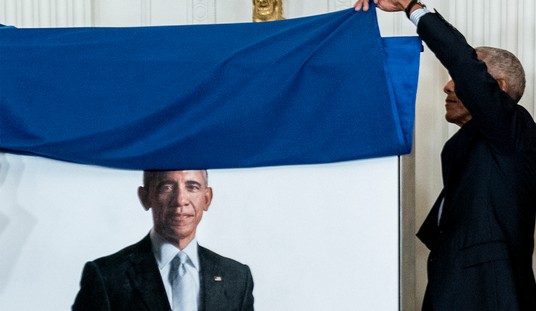This has been a bad week for, well, anyone who wants to go about their daily business — say by watching an Ariana Grande concert — without getting shot or stabbed or run over or blown up. You all know what I’m talking about, I’m not going to go over the list again — and besides, by the time this is published, the list might well be out of date.
Now, what I would hope is that the combination of President Trump’s meeting with 50-odd Sunni nations in Saudi Arabia, and their possibly-even-real commitment to act against Radical Islamist Terrorism (RIT for short), and the Manchester bombing’s attack against grade school girls, would finally serve to focus some minds throughout the West that have so far been pretty fuzzy.
Ignore for now the lunatics who want to simply, genocidally, eliminate all Muslims everywhere. That is, eliminate 1.6 billion people, roughly a quarter of the world’s population. And they’re armed with nuclear weapons and ballistic missiles. Maybe, maybe it could be done, but at what cost? Maybe 2 billion dead? Maybe 3 billion? And, afterward, you’d have a world ruled by the sort of people who think a massacre of a quarter of the world’s population is an acceptable solution to a political problem. Or a world in which flint-knapping is a skill in high demand. Vernichtung und Endlösung is not a payoff strategy.
What we want, what we hope might come out of this, is that the other end of the spectrum, the “poor Muslims are just misunderstood, terrorism comes from unemployment or Islamophobia or, God help us, climate change” liberals might get enough focus to realize that RIT might not be, strictly, an existential threat, but it is a profound threat, and the countries that are supporting RIT damn well could be an existential threat. So it behooves us to act like it, and do something about it now before it becomes an existential threat.
Which means, we need to go back and think seriously about what George W. Bush infamously called a “war on terror.”
I’m one of those people, possibly even the last one of those people, who didn’t think that was a bad way to phrase it. It has several virtues: it doesn’t align us against the whole Muslim world, all 1.6 billion of them; it is relatively non-interventionist; it’s actually a relatively well-focused goal.
That goal can even be stated simply: to make it completely clear that terrorism is a tactic that never pays off for the terrorists or for their supporters. Religions and ideologies notwithstanding, if we can convince people that the tactic of terrorism is never in their best interest, it will stop.
So how can we do this? What would this kind of strategy look like?
First, there is a truism, even a cliché, repeated in War Colleges, conference rooms, and ROTC dorm bull sessions: “amateurs study tactics; professionals study logistics.” Terrorism, like other forms of asymmetric warfare, depends on reduced logistical demands compared to putting a modern standing army, air arm, and navy into the field. But that doesn’t mean they don’t have logistical demands. Terrorists need places to train, need supplies, need communications.
The original post-9/11 strategy of the Bush administration clearly was built around this to anyone who had the eyes to see. The original 9/11 attack was run out of Afghanistan, where a half-baked 7th-century theocracy provided cover for Osama bin Laden’s organization. So, first step, overthrow the half-baked theocracy and replace them with someone more tractable.
Rule One: Don’t let terrorists set up shop anywhere
The decade of Iraqi no-fly zone was costing a fortune, and consuming many thousands of troops who might be better employed elsewhere; okay, eliminate the need, and take out Saddam Hussein in the bargain, since he was paying for terrorism in Gaza and the West Bank. (Yes they were, look it up. Iraq was paying pensions to the families of exploding jihadis through the PLO.)
Not coincidentally — look at a map — that meant Iran, which was openly supporting terrorism as well as attacking the U.S. directly through proxies like Hezbollah, was now cut off on either side from logistics and communication. At the same time, let Gaddafi know that we know he has WMD projects and that we don’t like it. Shortly after the U.S. military rolled into Baghdad, Gaddafi decided it might be better for his health if he did without those programs.
As a result, very quickly, we went from an unbroken band of hostility from Pakistan to Morocco to a situation with interrupted lines of communication and some major supporters of terrorism either isolated or dead.
(Of course, then we threw it away, particularly under Obama, but that’s a rant for another time.)
Rule Two: Make overt government support of terrorism an existential threat to the supporters.
Of course, in the modern world, a lot of logistics isn’t troops on the ground or supplies on ships and trains, but money represented by bits on financial networks. Because of this, it is possible for individuals to support terrorism without involving their national government at all. Saudi Arabia is probably the first place we should look for that. Even if the Saudi government was formally on our side, the country actually is basically a 7th-century satrapy in which constantly shifting alliances among powerful princes in many cases have more to do with what actually happens than the central government.
So, to block this digital logistical chain, we needed to block transactions on the world banking network, or use them to roll up existing operations.
Sadly, in June of 2006, an effective program using the SWIFT banking network was disclosed by Eric Lichtblau and James Risen of the New York Times:
WASHINGTON, June 22 — Under a secret Bush administration program initiated weeks after the Sept. 11 attacks, counterterrorism officials have gained access to financial records from a vast international database and examined banking transactions involving thousands of Americans and others in the United States, according to government and industry officials.
The program is limited, government officials say, to tracing transactions of people suspected of having ties to Al Qaeda by reviewing records from the nerve center of the global banking industry, a Belgian cooperative that routes about $6 trillion daily between banks, brokerages, stock exchanges and other institutions. The records mostly involve wire transfers and other methods of moving money overseas and into and out of the United States. Most routine financial transactions confined to this country are not in the database.
Rule 3: Make financial support of terrorism difficult and risky.
To which I suppose we might add rule three-and-a-half: convince U.S. journalists that not getting blown up is in their self-interest too.
And finally, Rule Four: Use the ‘International Laws of War’ scam to our advantage.
For an awfully long time, the Geneva Conventions and International Laws of War have not been applied to make war more “civilized,” but instead as a club to be used by the unscrupulous against the scrupulous. So, if Israel bombs a site from which missiles are being launched by Hamas, and the site is a hospital or a UN installation, we hear about the Israeli “war crimes” but no one points out that launching missiles from a UN installation is itself a war crime. Recently, U.S. drone attacks have killed civilians who were caught in the explosion when a combatant was killed — but no one mentions that combatants sheltering among civilians is itself a war crime.
So let’s turn that around: if a civilian is killed in a situation like that, don’t apologize. Express regret that the civilians were put at risk by the war crimes of the terrorist target. When some Da’eshi in Syria or Iraq executes prisoners by burning them alive or drowning them in a cage or sawing off their heads with a butcher’s knife, denounce that as torture, and laugh in the face of someone saying a Gitmo prisoner’s lack of a private bath is torture.
Stop entertaining complaints about indefinite detention at Gitmo — prisoners of war are detained until the end of hostilities. It’s not punishment, it’s prudence: you’re keeping them from returning to the fight. Of course, if they were captured not wearing a uniform or distinguishing sign, they’re unlawful combatants. Explain that we’re being merciful by not just shooting them.
Or shoot them. Hell, I’m easy. And don’t tell me how we can’t do that or they won’t treat our prisoners well: go look at the videotapes of Da’esh executions, or the murder of Daniel Pearl, and say it with a straight face.
Finally, someone please come out and say this: if someone is a U.S. citizen, and a combatant against the U.S. outside the United States, he does not have a right to due process. Why? Because he is engaged in combat. There were Japanese-Americans who by chance or because they left during the internment, ended up in the Imperial Japanese military. We didn’t — and couldn’t — ask men in combat to say “Are any of you US citizens? If so, hold up your hands!” It’s the same in Yemen or Afghanistan or Pakistan: U.S. citizen or not, if you’re a combatant, you’re a target.
So there’s my scheme: four fairly simple rules.
- Don’t let terrorists set up shop anywhere. Terrorist training camps, supply centers, and information operations (and especially information operation on the Internet) are legitimate targets and to be eliminated.
- Make overt government support of terrorism an existential threat to the government.
- Make financial support of terrorism by individuals or organizations difficult, and make it risky to the supporters.
- Make them play by our rules. No more war crimes scam; make our scruples into a weapon against the unscrupulous, not the other way around.
I suspect that the Saudis, and the other countries at Trump’s big conference, were all beginning to think about what could happen if terrorism keeps advancing, and Iran has operational nuclear weapons — even if they just buy one from North Korea or Pakistan.
If I were they, I would be having a recurring nightmare: an Iranian-owned ship — through a cutout, Saudi or Abu Dhabi or Dubai flagged — sailing into New York Harbor, or up the Potomac, or into Long Beach Harbor, containing a 50 kiloton atomic bomb, with sand or cobalt shavings or whatever was needed to make it a supremely dirty bomb.
A crew of a dozen disaffected young Gazans stand around a button, shake hands ceremoniously, and then the captain shouts “Allahu Akbar” and pushes the button.
And the war the lunatics want is begun.
[Corrected: Schwartzkopf rolled into Bagdad Iraq in the First Iraq Campaign, not the second.]










Join the conversation as a VIP Member